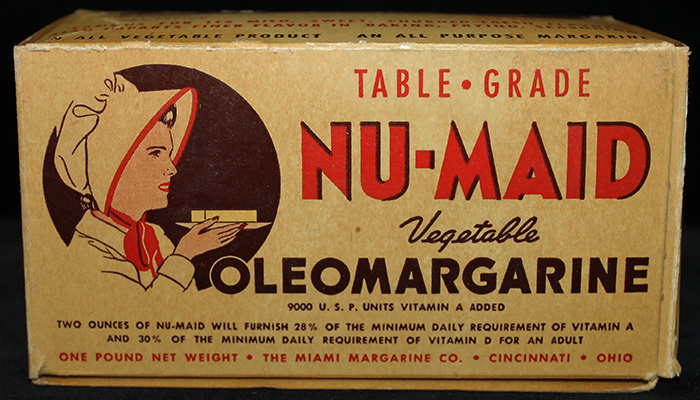cross-posted from: https://lemmy.eco.br/post/4492477
How to store digital files for posterity? (hundreds of years)
How to store digital files for posterity? (hundreds of years)
I have some family videos and audios and I want to physically save them for posterity so that it lasts for periods like 200 years and more. This allows great-grandchildren and great-great-grandchildren to have access.
From the research I did, I found that the longest-lasting way to physically store digital content is through CD-R gold discs, but it may only last 100 years. From what I researched, the average lifespan of HDs and SSDs is no more than 10 years.
I came to the conclusion that the only way to ensure that the files really pass from generation to generation is to record them on CDs and distribute them to the family, asking them to make copies from time to time.
It’s crazy to think that if there were suddenly a mass extinction of the human species, intelligent beings arriving on Earth in 1000 years would probably not be able to access our digital content. While cave paintings would probably remain in the same place.
What is your opinion?
Do you really think you are going to find a working CD drive in 100+ years? Try finding a working 8" floppy drive and a computer that can interface with one. They are only 50 years old and it’s quite a task to read an 8" floppy now.
Data has to be transferred to new media as it becomes available if you want to keep it and be able to read it decades later.
As long as it has a USB-A port, I think it will be good. We can’t seem to kill that one. ;)
Kinda doubt that tbh think at most 15-20 years then we’ll look at USB A like how we see serial today. We’re still in the infancy stages of companies phasing it out even though it started like 8 years ago.
you can physically wire A into C, it’s the same protocol. This won’t be broken like other adapters because neither device even knows about it
He was most certainly being sarcastic.
yeah but the CD keeps being backwards compatible with DVD players, then Blu-ray, then UHD Blu-ray… these new 125tb discs are the same form factor again. i think we’ll have CD players way longer than tape decks
I think CD is more or less at the end of its livecycle, most PCs sold today don’t even have a cd drive anymore.
They haven’t had any kind of drive for a while now. You know what does though? Game consoles.
Sure, but getting the data from the disks through a game console sounds pretty not fun.
The point is that even if CD or DVD drives aren’t produced nearly as much, there is still a market for newer drives that still support CDs and DVDs.
Sometimes I scrounge around bargain tech and I see a vga port (is that a serial port? I can’t remember) or the green/purple ports for a mouse and a ??? (keyboard???) and I am blown away because I forgot they existed. And do you remember that big fat fuckin’ port that you put a printer on? Cause I remember having to undo, redo, undo, redo that fker a hundred years ago because it never seemed to connect right. But I can’t even tell you WHERE I was messing with that. Maybe a library. I just remember it because it was the size of a harmonica (but not really).
@Clinico@lemmy.eco.br The M-DISC is your solution. Then just keep it in a cool dry place, airtight plastic bag if possible, and it will last longer than people will remember you.
Also, make sure to store a **desktop **computer in an airtight container next to your disks. If you have spare cash then get backup parts for the computer and keep them in their factory anti-static bags. No GPU needed, get a CPU with an integrated GPU.
Finally, in my opinion, information survives longer when it’s wanted. Get a big monitor, slap it against a wall, plug in a mini fanless PC, and have a random slideshow running during your waking hours. Let family add to the living slide show, teach them how to access the family NAS drive, show them how to access the archival disks in the basement, show them how to make new archival disks as they generate data to add to the family archives of house Clinico.
Long term storage requires an ongoing migration strategy. The whole ecosystem for reproduction gone away your pristine media will be inaccessible.
deleted by creator
HDDs aren’t written physically onto the plate. They flip magnetic fields. Anything relying on magnetic fields to store data is going to have a lifespan measured in decades, at best.
deleted by creator
lol a drive continuing to work for 10 years doesn’t mean that you could write to that drive, and have it sit in a drawer for over 10 years without the data getting corrupted.
deleted by creator
Not true the charge in the cells also leaks so it well eventually become corrupt. You can see it in running SSDs in sections that are not written to a lot. The data sits there unchanged and the SSD has to do error correction and it slows down the drive.
deleted by creator
did YOU read? we were talking about HDD
deleted by creator
I don’t think I’ve had a conversation that felt so much like Reddit on Lemmy until just now. when stored at a non-absolute zero temperature, magnetic discs are subject to thermal relaxation, even if they’re kept at a steady temperature. besides the fact that you’re going to pretend like we weren’t specifically talking about the HDD plates, I’m not continuing this conversation because holy shit you’re just trying to be frustrating
Highly presumptive on many fronts, as well as conflating the ability to reliably write with the ability to read data over the same time span. So, tell me of the connector on this hard drive that you have that is older than me. And what do you use that drive for beyond as a curiosity?
deleted by creator
And there’s that presumption. Just like the idea that a Faraday cage will block a magnetic field such as the earth’s. And unless your suggestion is that the poster just has to store his archive on the moon or farther, it will still be subject to influence from another magnetic field. And everything I’ve read puts bit rot at about 1% per year, which means, even with aggressive error correction about 50% of the archive will be lost within 70 years without an active refresh of the media. That’s not what’s generally meant by archiving. If it was, we would be talking about a process and a commitment by third parties to keep some random person’s archive intact for a century, unless what you’re really trying to suggest is that the real trick to building an archive that will last over a century is to live even longer?
deleted by creator
I think microfilms plastic properties arent guaranteed past about 500years
doesnt vinyl poison you?
deleted by creator
I’d just keep a couple different copies and then copy them every 5-10 years, or as new technology comes along. Maybe something like this will be available for consumers in the near future.
From what I researched, the average lifespan of HDs and SSDs is no more than 10 years.
Is this running or not running though? I think a bunch of flash chips, properly stored, would last quite a while
New SLC flash can store data for about 100 years when kept at room temperature. The data retention time will drop with write cycles though. Consumer SSDs use TLC or QLC flash, which is only guaranteed for 1 year of offline data retention, but it will probably be good for several years if it’s not worn out.
Where is this SLC quaranteed for 100 years.
SLC NOR flash often has a typical rating of 100 years at 25°C, but only 20 years at maximum operating temperature is guaranteed. These flash chips are a few megabytes or less and are used for storing firmware in embedded devices. They are often written once and expected to retain their data for the lifetime of the device without having the ability to automatically rewrite blocks that are loosing their charge like an SSD.
Time to crack out the ol’ microfische reels again for the photos.
I seem to remember an article about long term storage using quartz crystals from a few years ago, but I could be misremembering that
Constantly migrating your data from one storage to the next seems like the only real way.
Hardware solutions personally. . raise too many doubts. Like those “100 year discs”, that just screams untested/untestable.
Printing flip-books for the videos and keeping that in essentially a time-capsule. With a vacuum if you can afford it. Not perfect but will definitely last for hundreds of years. Look at the Magna Carta for inspiration.
For the audio, vinyl and kept in an even stronger container, instruct everyone to use gloves before touching it.






